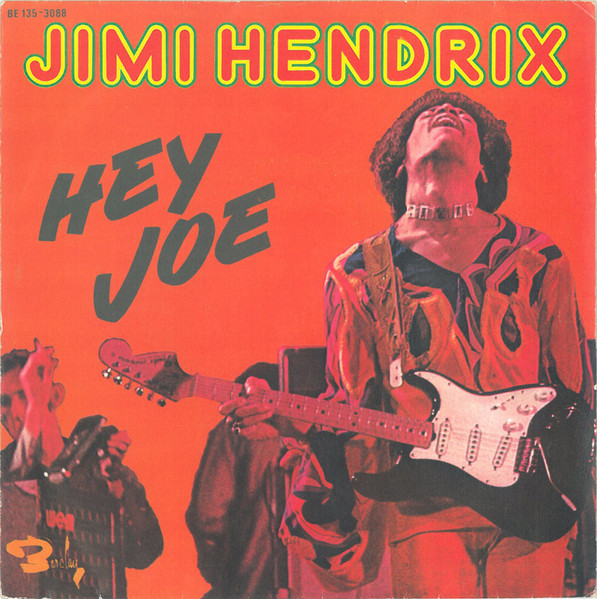
About the song
“Hey Joe” by Jimi Hendrix is one of those iconic tracks that captured the very essence of the 1960s rock revolution. Released on December 1, 1966, as the debut single of The Jimi Hendrix Experience, the song quickly became a cornerstone of Hendrix’s groundbreaking career. It also appeared on the band’s debut album, “Are You Experienced”, which was released in May 1967.
The song itself is a compelling reinterpretation of a traditional American folk tune, with Jimi Hendrix bringing his own electrifying twist to it. Originally a blues and folk standard, “Hey Joe” was popularized by several artists before Hendrix, but it was his version that truly redefined it. Hendrix’s rendition features a powerful and emotive guitar performance that is both raw and sophisticated, showcasing his extraordinary talent. His innovative use of feedback and distortion creates a sound that was revolutionary at the time, setting a new standard for guitarists everywhere.
Lyrically, “Hey Joe” tells a dramatic story about a man on the run after committing a violent crime. The narrative unfolds with the protagonist confessing to his girlfriend about having killed his wife and seeking to escape to Mexico. This dark and intense subject matter is delivered with a sense of urgency and desperation, adding to the song’s dramatic tension. Hendrix’s vocal delivery, combined with his passionate guitar work, transforms this narrative into a powerful and gripping piece of music.
The release of “Hey Joe” had a significant impact on the music scene. It marked the arrival of Jimi Hendrix as a major force in rock music. His innovative approach to the guitar and his charismatic stage presence captured the imagination of both critics and audiences alike. The song’s success helped establish The Jimi Hendrix Experience as a groundbreaking band and paved the way for Hendrix’s future achievements. The track’s fusion of blues, rock, and psychedelia epitomized the experimental spirit of the late 1960s, influencing countless musicians and shaping the direction of rock music.
Socially, “Hey Joe” resonates with the countercultural movements of the era. The late 1960s was a time of profound social and political change, and Hendrix’s music, with its mix of rebellion, innovation, and emotional depth, spoke to the youth of the time. The song’s raw energy and Hendrix’s revolutionary guitar techniques captured the zeitgeist of an era that was eager to break free from traditional norms and explore new artistic horizons.
In summary, “Hey Joe” by Jimi Hendrix is much more than just a song; it is a landmark in rock history. Released on December 1, 1966, and featured on “Are You Experienced”, it highlights Hendrix’s extraordinary talent and his ability to transform a classic folk song into a powerful rock anthem. Its influence on the music world and its reflection of the social changes of the time underscore its lasting significance and its place in the pantheon of great rock music.
Video
Lyrics
Hey Joe, where you goin’ with that gun of your hand?Hey Joe, I said, where you goin’ with that gun in your hand? OhI’m goin’ down to shoot my old ladyYou know I caught her messin’ ’round with another man, yeahI’m goin’ down to shoot my old ladyYou know I caught her messin’ ’round with another manHuh, and that ain’t too coolHey Joe, I heard you shot your mama downYou shot her down nowHey Joe, I heard you shot your lady downYou shot her down in the groundYeahYes, I did, I shot herYou know I caught her messin’ ’round, messin’ ’round townYes, I did, I shot herYou know I caught my old lady messin’ ’round townAnd I gave her the gunI shot herAlrightShoot her one more time again, babyYeahOh, dig itAlrightHey, JoeWhere you gonna run to now? Where you gonna run to?Hey Joe, I saidWhere you gonna run to now? Where you, where you gonna go?Well, digI’m goin’ way down southWay down to Mexico wayAlrightI’m goin’ way down southWay down where I can be freeAin’t no one gonna find meAin’t no hangman gonnaHe ain’t gonna put a rope around meYou better believe right nowI gotta go nowHey, JoeYou better run on downGoodbye, everybody, owHey, hey, Joe, run on down